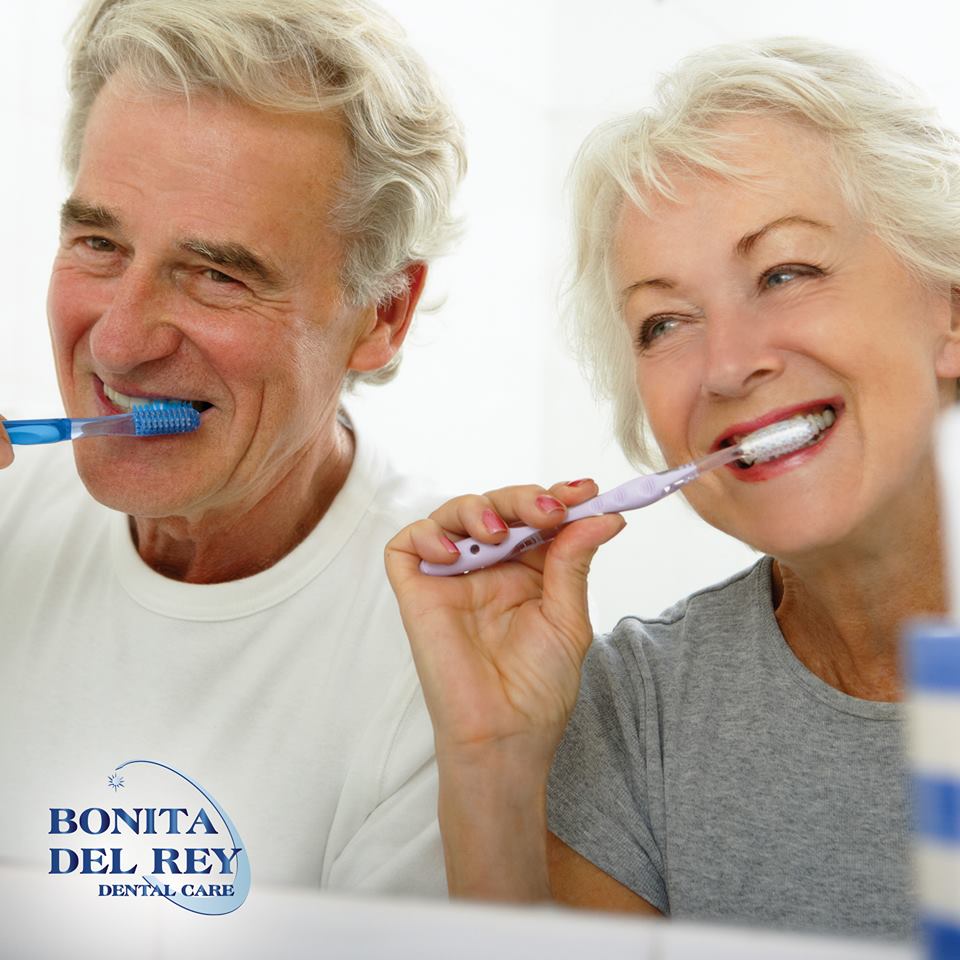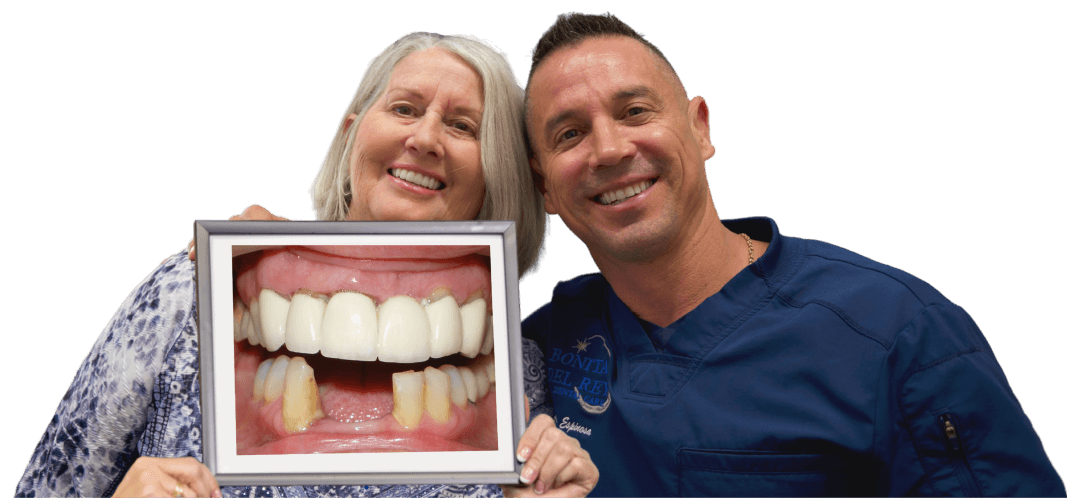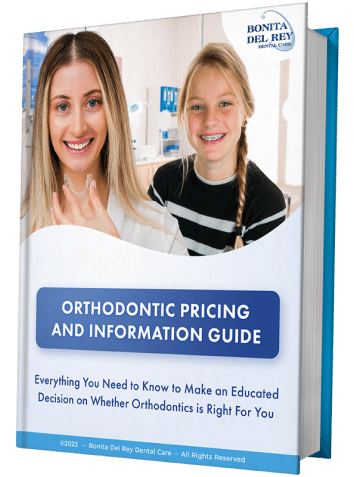Gum Disease
Did you know an estimated 3 out of 4 American adults have gingivitis? This is the earliest stage of gum disease and can be treated. However, if it isn’t treated, gum disease can lead to more severe problems and potentially tooth loss.
“Have you noticed colorless film forming around your teeth? This is what causes gum disease. If you aren’t regularly brushing or flossing, plaque builds up around your teeth and turns into a harder substance called tartar or calculus. Once you have tartar buildup, brushing and flossing no longer do the trick to remove it. You need a professional dental cleaning,” says Dr. Espinosa.
Gum disease can be hard to detect because initially, there will be few signs and no pain. Here are the most common symptoms:
- Visible buildup around your teeth and gums
- Sensitivity to hot or cold foods/beverages
- Persistent halitosis, or bad breath
- Gums bleed when you brush or floss your teeth
- Continuous bad taste in your mouth
- Gums that recede or move away from your teeth
- Gums are tender, red and swollen
- Tooth loss
- Teeth movement, or change in how your dentures fit
- Pain when chewing
There are three stages of gum disease; gingivitis, periodontitis and advanced periodontitis.
- Gingivitis – The earliest stage of gum disease, gingivitis is the inflammation of the gums caused by plaque buildup along the gum line. Often times you may notice gums are red, swollen or bleed easily when you brush or floss. At this stage, you can get treatment and prevent further damage.
- Periodontitis – During the second stage of gum disease, periodontitis, the bone and tissue holding your teeth in place are damaged. Unfortunately, you can’t reverse the effects at this point. Plaque starts to grow below the gum line and professional treatment is needed to prevent further damage or tooth loss.
- Advanced Periodontitis – The third stage of gum disease is advanced periodontitis. In this stage there is severe damage to your gums and bone and teeth loosen. Teeth may need to be removed and restorative measures are put into place, like dental implants.
While the sound of losing your teeth sounds a bit frightening, it can be prevented! Make sure you’re brushing and flossing daily, using an antibacterial mouthwash and scheduling your regular checkups with your dentist. If you have any concerns, please contact our office with any questions.












